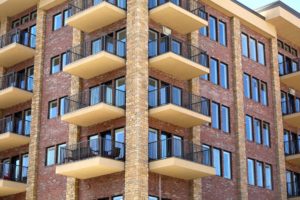If you ask any real estate investor they will often agree that investing in multifamily rental properties is one of the keys to building wealth because as Grant Cardone once said “more doors equals more money” but should you be concerned about cost segregation when you invest in multifamily rental properties? The answer is yes.
What Are The Benefits Of Cost Segregation?
Cost segregation is a tax planning strategy that accelerates the depreciation of certain components of properties. For real estate investors, benefits include reducing their current tax liability, which results in upfront cash flow.
Without cost segregation, multifamily rentals are depreciated straight-line over 27.5 years. In contrast, with cost segregation, certain components can be depreciated on a faster track (such as five, seven, or 15 years).
Below are a few examples of components typically found in a multifamily that are eligible for cost segregation depreciation:
Item Asset Class New Life Parking lot Land improvements 15 years Lawn sprinklers Land improvements 15 years Carpeting Distributive trades & services 5 years Kitchen stove Distributive trades & services 5 years And to give you the bigger picture, here’s a before and after example of a multifamily unit that utilized cost segregation:
For this $800,000 apartment complex, accumulated depreciation without cost segregation was $3,636. Accumulated depreciation with cost segregation, however, amounted to $315,622.
What a difference, right?
It is important to note, though, that just because you have these additional deductions doesn’t mean you can use them right away.
A Practical Example of Cost Segregation
Let’s say you purchased the above multifamily in November 2018 for $900,000. If you carve out $100,000 for land, the remaining $800,000 will be depreciated straight-line over 27.5 years.
If it has eight units renting at $1,000/month each, here’s what your numbers might look like:
- $96,000 per year in gross rent
- $32,000 per year in operating expenses (maintenance, advertising, taxes, vacancy, landscaping, etc.)
- $38,000 per year in interest on the loan
- Net operating income is $26,000
When calculating your taxes, you would also get a depreciation deduction of $3,636 (only a month and a half of depreciation your first year). This leaves you with $22,364 in passive income for this property.
Assuming you’re in the 22 percent tax bracket, that means you would pay $4,920 in taxes on this passive income. On the flip side, if you do take advantage of cost segregation, you can pick up an extra $311,986 in deductions.
These additional deductions can wipe out your passive income of $22,364 and save you the $4,920 in taxes. The remaining $289,622 carries forward and will offset passive income in future years until it’s used up.
This is what we call utilization!
Final Notes
This passive income and passive loss analysis can be done across your entire rental portfolio. In other words, the $311,986 that you can capture for this property can also offset the passive income from your other properties.
Plus, if your tax preparer agrees that you can be designated as a “real estate professional,” then the $311,986 could offset your active income (ie., your W2 wage), as well. In this case, if you did cost segregation and are permitted to use the $311,986, you would save a whopping $68,637!
At the end of the day, I strongly recommend you enlist your tax professional to ensure that you can make use of cost segregation. They know your financial situation and will walk you through the process, which can definitely be somewhat complicated.
Bottom line: cost segregation is valuable! In the above example, using the full $311,986 is like borrowing $68,637 from the federal government—interest-free!
Get Property Management In Portland Oregon
Need property management in Portland Oregon? Contact Property Management Systems today by calling us at (503) 515-3170 or click here to connect with us online.






